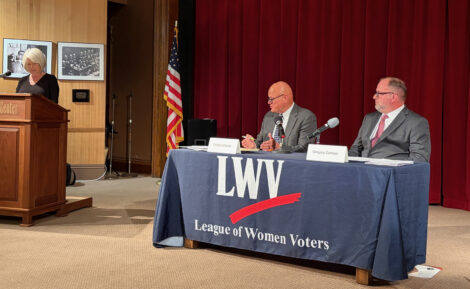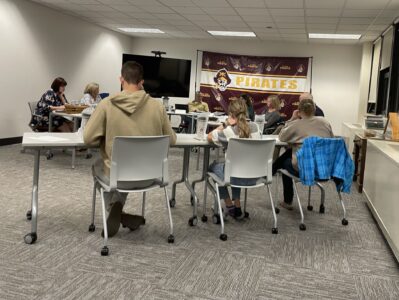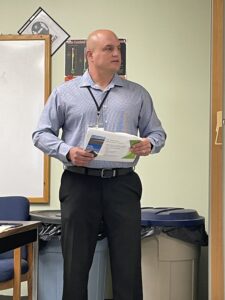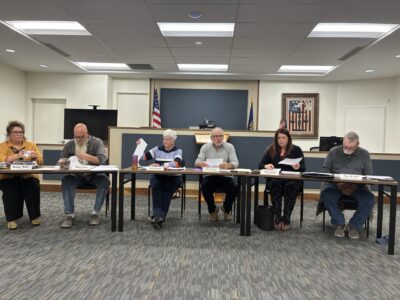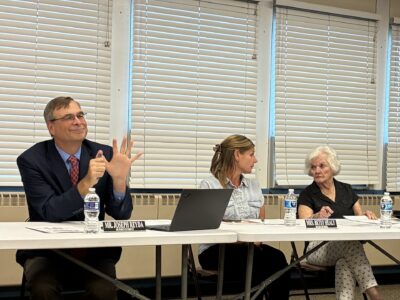Ryan Melquist Reflects On Career As Aspiring, Working Musician
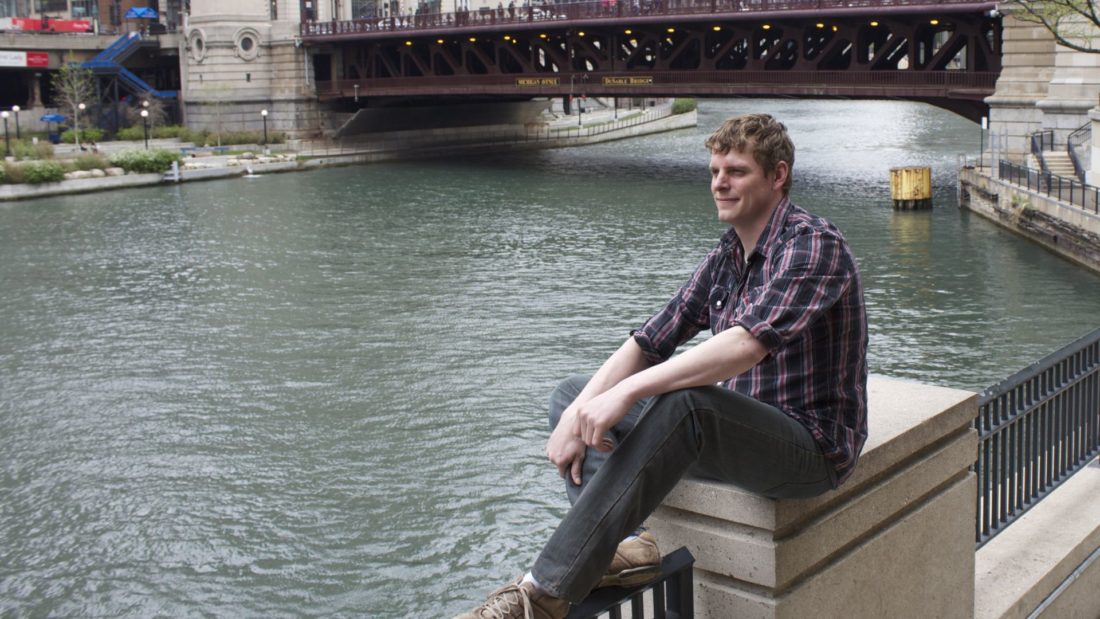
For nearly two decades, Jamestown’s Ryan Melquist has been synonymous with the area’s reggae-roots rock movement.
Having first hit the scene at the turn of the century as a member of the popular local band Atica, Melquist’s journey has since taken him throughout various regions of the country as he slowly made the transition from aspiring musician to a full-time performer.
Currently, Melquist can be seen performing with his band Qwister, as well as in solo and trio shows, throughout Western New York, Northwestern Pennsylvania and Northeastern Ohio. As of this week, he is heading south with his fellow Qwister companions Nate and Graham Mahaffey to perform a monthlong, 20-concert tour of cities in Tennessee, North Carolina, South Carolina, Georgia and Florida. The tour, dubbed “Mountains to Coast,” will wrap up at the beginning of June, whereupon he will return home to again perform in the area.
Recently, Melquist met with The Post-Journal to discuss his undying passion for music and some of the memorable moments throughout his career. The following is an abbreviated transcript of that discussion:
ı ı ı
P-J: Where did you get your start with music, and what made you want to pursue that as a hobby?
Melquist: It actually started in church when I was about 15. I was in youth group and the choir, but I started learning to play guitar from my youth pastor, who just passed away, and I thought it was the coolest thing ever watching him do his thing. So when I got up there and started doing it for myself, there was the element of having people in front of me that made me, to a degree, kind of feel like I was one of the cool kids. And I guess I could say that kind of fed into my young ego where I felt like people would maybe respect me a little more. All musicians, or at least most of them, have that impulse to be up in front of a crowd, and so for me that really kind of pushed me toward doing that as much as I could.
P-J: How would you chart your progression into becoming the performer that you are today?
Melquist: Well I consider myself to be a vocalist first and foremost. I was singing in the choir long before I learned guitar at 15. But once that happened I started playing in bands. I formed my first band in my church days, and we were called Raven Fed. We didn’t do much, though, we were just having fun. Then when I graduated high school I went to JCC, where I played in Rock Ensembles and met up with the guys that I would form Atica with. That band was where things really started to take off; we played all over the area for a few years and had a good following during that time. Our drummer, Jeremy Kinnear, died in 2001 and we split up shortly after that, and then I moved down south to Florida and the Carolinas, mostly, and I was away for about 10 years. That’s when I learned to become a “performer,” because I started doing solo shows and I had to carry an entire show on my own. I also learned how to market myself, and made a lot of contacts during that time; some of which I still use today.
P-J: Now that you’ve moved back home and have a family, what went into your decision to become a full-time musician?
Melquist: Right before I moved back to Jamestown in 2012, my wife and I had our first kid and we were living in Chicago at the time. So when we came back I really had this solid basis for looking at music as a business. Initially I hit up all my buddies from Atica about getting the band back together, but ultimately it didn’t happen. For a little while I had a duo with Atica’s other guitarist, Colin Shaffer, called City Folk but we didn’t end up playing out too much. When that fizzled out I called Ryan Ecklund, who was Atica’s bassist, about starting something new, and that eventually was how Qwister was born. It took a while for things to get off the ground with Qwister though, so in the meantime I did some soul-searching and decided that I needed to start doing shows as soon as possible and so I just kept moving forward with it. It’s been about four years now since I decided that music was what I was going to do as a means of supporting my family. I talked with my wife about it and she was on board, she believed in me enough that I would be able to do what I needed to do to make this work. I call that “the jump,” because that’s the moment in time where every musician will ask themselves if they’re willing to take the chance and put the effort into making music your life’s work. I took “the jump” and so far it’s been paying off, and we’ll see how much longer I can keep that going.
P-J: What would you say is the greatest thing to have come out of your relationship with making music?
Melquist: When you go full-time, it gets literal, and it’s never been more literal to me than it has in the past few years. Making music is a romantic journey. People joke about your bandmates being like a bunch of girlfriends, but it’s kind of true at times. You go through so many experiences together and when bands break up, it’s like breaking up with your girlfriend. So, altogether in retrospect, I would say the biggest thing to have come from all of this was the people I’ve met. There are so many memories I couldn’t even tell you what the “highlights” would be. When you take it all in and look at it as a whole, it always comes down to the places you get to go and the people you get to meet.
——

